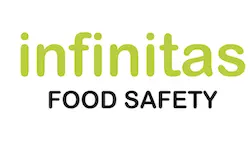💡 This blog is part of our Food Safety Help Centre – your one-stop resource for food business owners who want clarity, not confusion.
Each year, thousands of businesses, just like yours, receive a Food Hygiene Rating. The Food Hygiene Rating Scheme (FHRS) is useful because it helps consumers decide where to eat or shop.
Now think about how you’d feel if your rating was wrong or unfair? If you thought you didn’t deserve that score – would you know your rights? And how to activate those rights?
This is the first in a series of articles about the appeals process laid down within the Food Hygiene Rating Scheme (FHRS). Today, in Part 1, we uncover the problem with the FHRS appeals system. Part 2 answers your food hygiene appeal questions. In Part 3, we explain how to appeal your food hygiene rating using GIA, our AI assistant. Let’s dive in.
Table of Contents
Food Hygiene Rating Scheme (FHRS) Appeals - An Important Safeguard
To start, we can think of the Food Hygiene Rating Scheme (FHRS) as a safety net for public health. It has been designed with good intentions. The aim is to protect consumers and maintain high standards of safety. But like trying to catch fish with a net, the wrong things can get caught, and the right things can slip through.
Why do you need to know this? Well, it means that your business could be awarded a food hygiene rating that is unfair or wrong.
The regulators acknowledge this imperfection. And this is why the (FHRS) appeals system was developed. It is a safeguard to prevent businesses from receiving an unfair or incorrect food hygiene rating. So let’s look more closely at what the (FHRS) appeals system is designed to protect against.
What Does The Food Hygiene Rating Scheme (FHRS) Appeals Protect Against?
The (FHRS) appeals system is there to protect your business from being awarded a food hygiene rating that is either wrong or unfair. But why would your hygiene rating be wrong or unfair? Let’s look at the possible reasons:
Inconsistency. Assessing your food hygiene rating involves subjective judgment. Imagine two teachers who grade a school exam differently. Well two Environmental Health Officers (EHOs) may grade your food business in different ways too.
Human Error. EHO’s can make a mistake. After all, they are human.
Misinterpretation: EHO’s may interpret food laws in different ways.
So what can you do if your business is awarded a food hygiene rating, and you disagree with the score? Well, you can appeal – it is your right. And we cover this next.
Right To Appeal A Food Hygiene Rating
Think about what would happen if you received a parking ticket. You may feel that you have a legitimate reason to dispute it. And so you decide to use the appeals procedure. Similarly, as a food business owner, if you feel your Food Hygiene Rating is unfair or wrong you can challenge it.
FHRS Appeals - A Protection Mechanism
The (FHRS) appeals procedure is an important safeguard. It has been built into the Food Hygiene Rating Scheme as a protection mechanism.
Would it surprise you to know that many small business owners do not realise this option is available to them?
Instead, business owners tend to gravitate towards the re-inspection procedure. This requires payment of a fee to obtain a new hygiene rating. Fees for a re-inspection have gone up as Local Authorities try to recover their costs. For example, in Cardiff, Swansea and Carmarthen, the re-inspection fee is around £255. In England this fee can be over £400. If you compare the cost of re-inspection to the (FHRS) appeals procedure – making an appeal is FREE. That’s right – no fee to make an appeal application.
Is the FHRS Appeals System Broken?
The Food Standards Agency assesses the performance of the FHRS appeals system every year. It then sends a report to the Welsh Government.
The last report in February 2024 revealed a shocking statistic. It states that less than 1% of businesses appeal their food hygiene rating. For a system designed as a critical safeguard, this is not just underwhelming – it’s alarming.
A further report undertaken by IFF Research on behalf of the FSA (published September 2024) stated that overall awareness of the safeguard to appeal was high across business in England, Wales, and Northern Ireland.
IFF suggested a reason for businesses not appealing. They assume businesses are content with their food hygiene rating.
Barriers To Using The Food Hygiene Rating Appeals Procedure
So why do businesses fail to use the FHRS appeals procedure? Here are some of the reasons we know so far:
🔹 Lack of awareness: Business owners may not be properly informed about their right of appeal, especially small and micro businesses. The information exists, but it may not be effectively communicated to them.
🔹 Fear of retaliation: Confrontation may worry some business owners. They may view an appeal as questioning the EHO’s expertise or authority. In other words, business owners may be concerned about challenging an EHO’s decision. They may worry that it may result in harsher treatment in future inspections.
🔹 Confusion about the process: The rescore process may feel relatively straightforward (pay your fee, prepare, get reinspected). Now compare this to the appeals procedure — it may seem complex, uncertain and bureaucratic. It could also seem too intimidating to use.
🔹 Appealing may be considered too big of a risk: Deciding whether to use the appeals procedure involves taking a carefully considered risk. Think about it – any appeal would involve effort, time and money. The likelihood of success will be unknown. And so a business owner may weigh this up (the return on investment), and then decide appealing a Food Hygiene Rating is not a viable option.
🔹 Lack of Confidence/Expertise: They many lack confidence and expertise to put together a successful appeal argument. Also, they may have no clear picture of potential success rates, or what makes a strong appeal case. It would be easy to understand why a business owner may feel powerless. They may simply accept their fate, and assume the system is stacked against them.
If you have questions about the Food Hygiene Rating Appeals Process — read our article about FAQs About Food Hygiene Rating Appeals.
Final Thoughts
The Food Hygiene Rating Scheme (FHRS) appeals procedure exists for a reason. It is there to protect a business when things go wrong. But if less than 1% of businesses are using it, this safeguard is not working as intended. The Food Hygiene Rating Scheme has been operating for over ten years. During this period, the number of businesses using the (FHRS) appeals safeguard have remained static – and virtually non-existent.
The FSA seems to accept that the appeals procedure is rarely used, instead of uncovering why this might be. Businesses appear to be sign-posted towards the re-inspection procedure. This may happen even when there may be legitimate grounds for appeal.
What Needs To Change?
There needs to be:
• Improved awareness about the appeals procedure. EHO’s must provide clear communication at every inspection before leaving the premises.
• A more transparent appeals system is needed. The use of templates and examples could make the process seem less intimidating.
• Local Authorities should not push businesses towards paying for a reinspection. This seems to be the blanket approach. The appeals procedure may be more appropriate.
• Finally, isn’t it time that the FSA uncovers why few businesses use the appeals procedure? Or should we all just look the other way – and stay silent?
Next Steps?
Do you have questions about the (FHRS) appeals procedure? Read Part 2 – our Complete FAQ Appeal Guide here. Get all your questions answered.
Remember – the (FHRS) appeals procedure is there to help your business. It is your right to appeal if you feel your hygiene rating is unfair or wrong.
Do you disagree with the outcome of your recent EHO inspection?
Does your hygiene rating feel unfair or wrong? Wondering how to challenge it?
👉 You have the right to appeal, and it’s completely FREE.
Start your (FHRS) appeal application today.
💡 Meet GIA, the AI powered (FHRS) Appeals Assistant.
Free support to appeal your Food Hygiene Rating!

⚙️ GIA works inside ChatGPT. You’ll be prompted to log in or create a free account first.
GIA is an AI Bot – she has been fully trained to understand the Food Hygiene Rating Scheme (FHRS) Appeals Procedure. She will walk you through the appeals process step by step. As well as checking your eligibility to appeal, she will generate a fully formatted appeal letter using the official Food Standards Agency (FSA) template. We hope you find GIA really useful.
